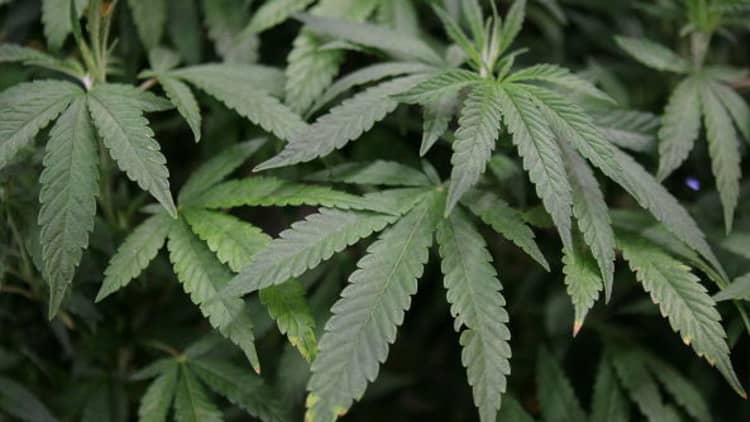
Every year on 4/20, the unofficial marijuana holiday, tens of thousands of people converge upon Hippie Hill in San Francisco's Golden Gate Park to smoke marijuana. This year, what used to be an act of defiance against laws banning the use of cannabis has turned into an act of jubilation.
Bianca Haynes drove four hours from Bakersfield to mark the first 4/20 since California legalized recreational marijuana use. "We're going to be here all day. We're going to listen to music, vibe out, eat some good food, take a lot of pictures, and make a lot of memories," she said.
But while users are happy, there are signs the new freedom isn't paying off as well as expected for businesses.
Dispensaries across the Bay Area are courting customers with giveaways, raffles, live music and food trucks. But many dispensary owners are still waiting to see whether the economic prospects of legalization of recreational cannabis will be fully realized.
Consumers spent an estimated $339 million on marijuana products in the first two months of legal recreational marijuana sales in California, according to a report from cannabis data firm BDS Analytics. If sales continue at the same pace, that would be 11.5 percent lower than state estimates.
State officials contend that their estimates baked in an expectation that sales will ramp as more businesses get licensed for recreational use. The state will come out with updated numbers next month.
Still, some dispensary owners argue that there are real hurdles to a truly free market.
"The restrictions and the rules and regulations that the state put forth are very, very stringent, so some dispensaries are still in this limbo area," said A.G. Melendez, director of operations at The Green Door dispensary in San Francisco.
Taxes are another issue. The high taxes on weed have led to prices increasing as much as 30 percent for some customers.
"The high taxes have translated to high prices for legal marijuana and that drives customers back to the unregulated market," said Sean Luse, COO at Berkeley Patients Group, the nation's oldest continuously operating dispensary.
Weedmaps, a company known as the "Yelp" of cannabis, works with both licensed and unlicensed companies. It reports that 85 percent of California's cities and counties still ban marijuana sales. Despite state laws, local jurisdictions can still prohibit weed sales.
The company's president and general counsel, Chris Beals, said limited access is another factor sending consumers to the unregulated market, which he said accounts for as much as 90 percent of California's cannabis market.
The heart of the problem, Beals said, is that most consumers aren't willing to travel more than 15 miles to buy cannabis products, and only a fraction of the state's consumers live within that radius of a licensed dispensary. Those who do, on the other hand, often struggle to find the right products at their local shops, since companies that make marijuana products such as edibles are also facing tougher regulations.
"For those where legal retail is within 15 miles, you're seeing store shelves that don't have many of the products they're familiar with, simply because those operators don't have licenses, despite in all these cases people frantically trying to find a place to get a license," Beals said.
Unless local governments lift bans and ease regulations, the black market will continue to thrive, said Andrew DeAngelo, director of operations at Harborside dispensary.
"This is a problem, and as long as we have this problem the black market will continue to assert itself and the legal market will continue to be constrained," says DeAngelo.
Still, many entrepreneurs, like Melendez, remain bullish on the fledgling cannabis industry in California. While sales have increased 30 percent at his dispensary since prohibition was lifted, he hopes that's just the beginning.
"In the next year, I hope to have at least doubled or tripled in that business," Melendez said.


